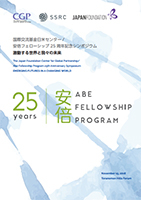CGP/Abe Fellowship Program 25th Anniversary Symposium: Emerging Futures in a Changing World
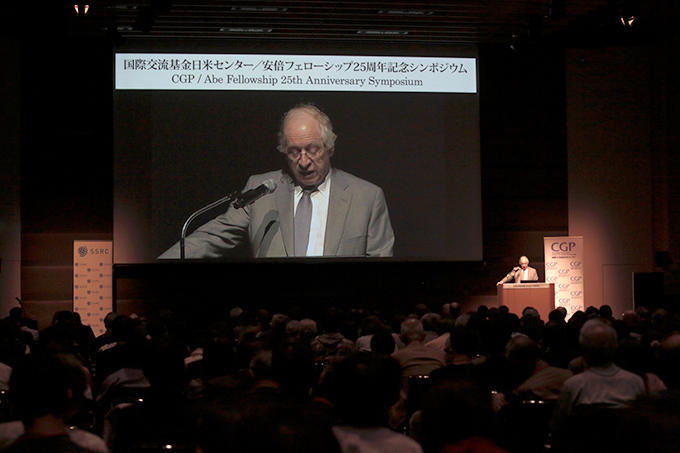
Keynote of Gerald Curtis "Preparing for an Uncertain Future
On November 15, 2016, the Japan Foundation Center for Global Partnership (CGP) and the Abe Fellowship Program commemorated its 25th anniversary with a special symposium on the challenges and issues currently facing Japan and the United States--and the role that the intellectual communities in both countries play in navigating the world's ever-changing dynamics. The gathering brought together a distinguished group of experts from a wide variety of fields to discuss the U.S.-Japan partnership, a topic that had taken on a decidedly new tone and significance with Donald Trump's victory in the presidential election just a week prior to the event. After keynote addresses by Yukio Okamoto and Gerald Curtis, the symposium then featured a dialogue between leading authorities in international relations. The recent election, the uncertainty surrounding America's new president, and the implications of America's changing political landscape proved popular talking points throughout, with each speaker weighing in on what the transformations might mean for Japan, the U.S., and Asia.
Finding a balance in a changing world
The first speaker to take the stage was Yukio Okamoto, President of Okamoto Associates and a Robert E. Wilhelm Fellow at the Massachusetts Institute of Technology. At the opening of his address, titled "Searching for a New Equilibrium," Okamoto commented on the results of the U.S. presidential election--an outcome that he attributed to a popular rejection of idealist, progressive policies and globalization, akin to how the Brexit movement gained traction in the United Kingdom. Despite being able to recognize the currents that pushed Trump to victory, Okamoto said, the uncertainty clouding the new administration would make the coming months and years almost impossible to forecast. Not only are Americans unsure of whether the president will make good on his promises to build a wall between the United States and Mexico, withdraw from the Trans-Pacific Partnership (TPP), and clamp down on Muslim immigration, but America's allies--Japan and Europe, for example--also have no idea what to make of Trump's ideas and isolationist outlook.
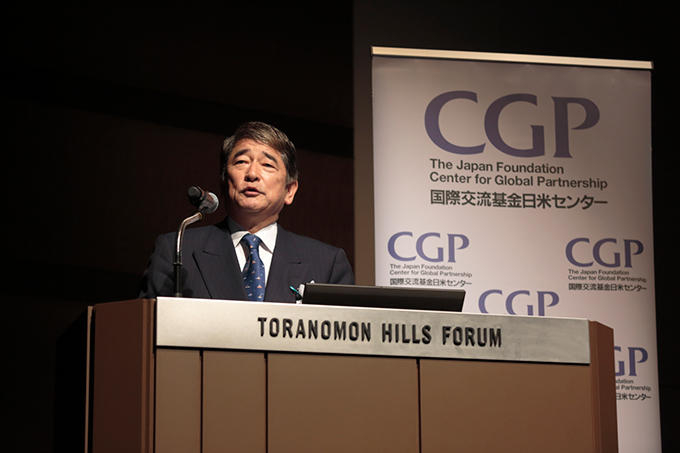
Yukio Okamoto (President, Okamoto Associates) gave keynote lecture.
Okamoto then turned his focus to economic policy. Trump's election has put the TPP on ice, first of all. With the president intending to pull out of the agreement, Okamoto called on Japan to take the lead in driving the TPP forward. Another point deserving careful attention, Okamoto explained, is how the balance of power in Asia might shift with Trump in office. Okamoto called the Asian situation a "zero-sum game" where declining U.S. involvement would result in expanding Chinese power. Given his concerns about the future of East Asia, Okamoto then turned his attention to the U.S.-Japan Security Treaty--what he framed as a powerful means of deterrence against aggression--and underlined the need to maintain a positive rapport between the two countries. "If U.S.-Japan relations are unfavorable," he argued, "surrounding nations will feel that the U.S. will not exercise its power." That might enable countries like North Korea to assert themselves more forcefully; on the other hand, a strong U.S.-Japan alliance would help sustain peace in the region.
At the end of his keynote address, Okamoto suggested that Japan, in close cooperation with ASEAN and other East Asian countries, needs to make greater efforts to maintain peace and stability in Asia. He suggested a number of specific areas. First, Japan needs to demonstrate to neighboring countries that it is a country capable of reform in order to fulfill the responsibilities and expectations of the international community. Second, Japan must engage directly with historical issues. Reconciliation can only be achieved with an apology and forgiveness from both sides, he suggested. As there is little time remaining to reconcile with past victims, however, Japan needs to adjust its approach in order to secure the genuine trust of its Asian neighbors. Lastly, Okamoto acknowledged the difficulties of these issues but positioned the situation as an opportunity: It is precisely because Japan finds itself facing a new era that it should see this as a valuable chance to build stronger relationships of trust with other Asian countries.
Structural changes in the United States
In the next keynote address, Gerald Curtis, the Burgess Professor Emeritus of Political Science at Columbia University, tackled the origins of the "uncertain future"--questions about Trump's policies, advisors, and impact on Asia, for instance--by tracing Trump's stateside popularity to four key structural changes. The first change, a growing gap in economic inequality, has seen a whopping 80% of the U.S. population remain at the same standard of living for years and years. Trump appealed to that demographic, invoking hope in the possibility that an outsider could break the holding pattern. Another important change, Curtis explained, is opposition to globalization: As manufacturers continue to relocate their factories from the United States to foreign countries, citizens are seeing real evidence of how open international trade can have a devastating effect on their livelihoods. With Trump's election, which drew on that resentment, the "TPP is dead." In Curtis's eyes, this policy shift opens the doors for Japan to spearhead a U.S.-less TPP that could eventually draw the U.S. back into the fold. The third structural shift centers on demographics. Expanding minority populations are creating broader diversity, Curtis argued. In addition to making America strong, diversity simultaneously fans fears of the "other"--a strain that "Trump successfully exploited in his race to the White House." The final trend is the alienation that Americans feel toward their elected representatives. Trump clearly played that mood to his advantage: An American opinion poll showed that 40% of all respondents valued the "ability to bring about change" above any other trait in a politician--and 80% of those respondents supported Trump.
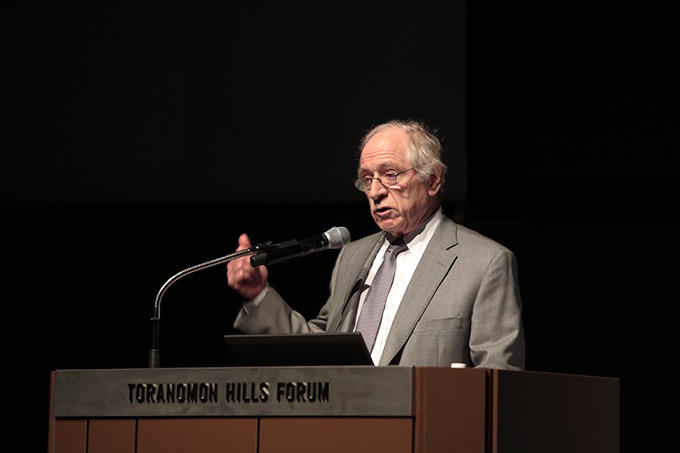
Gerald Curtis explains "identity politics" of millennials and minorities clouded democrats vision.
Now, with Trump in office, the Democrats are picking up the pieces of a fractured party. Whether they have fully faced up to the factors that led to the result of the presidential election, however, is unclear. Had Hillary won, Curtis suggested, the Democrats would have simply congratulated themselves on a job well done without giving much thought to why around half the country voted for the other candidate. For Curtis, the silver lining in Trump's victory was that it could have given liberals a chance to take a "cold shower" and acknowledge what they needed to do to "reconnect with people in our country." That cold shower, however, has yet to have any effect: The Democrats are simply looking for scapegoats in the media and the general population. Their overconfidence in the "identity politics" of millennials and minorities, in the end, clouded their vision. According to Curtis, American liberal elites are grossly mistaken in assuming that attempts to appeal to white, working-class voters push away their minority bases; that mindset of a "trade-off" between white support and minority support only serves to fan the flames of racism further.
Like Okamoto, Curtis acknowledged that understanding Trump's rise to power does little to help project what he will do as president; according to Curtis, the president's policy stances have been so aggressive and unpredictable that no one knows what to expect. His approaches to Japan and China, likewise, are unclear. Changing global conditions are reshaping the U.S.-Japan partnership, as well. The original alliance took form when Japan was reeling from its defeat in World War II and the United States was the world's supreme power, Curtis explained. However, America's increasingly tenuous grasp on global leadership is giving way to the economic might of China. These shifts in the Asian context are now joined by the uncertainty of the Trump administration, which appears to be pointing the United States down a path of limited interventions and increased isolationism. Managing the U.S.-Japan alliance effectively, Curtis concluded, has never been as daunting a challenge as it is now
International relations, the media, and the academic community
Following the keynote addresses, the symposium welcomed moderator Yoshihide Soeya (Professor of Political Science and International Relations at Keio University), Akihiko Tanaka (Professor of International Politics at the University of Tokyo), and Sheila Smith (Senior Fellow for Japan Studies, Council on Foreign Relations) for a dialogue on the future of U.S.-Japan relations.
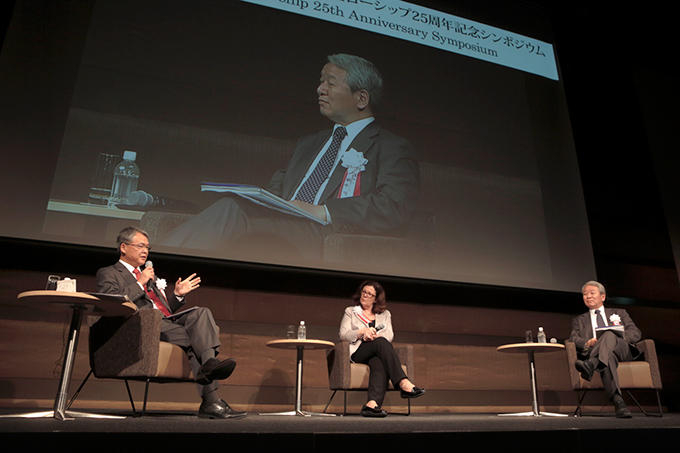
Experts Dialogue. Yoshihide Soeya, Sheila Smith, Akihiko Tanaka (from left to right)
After discussing the past 25 years of the Abe Fellowship Program, noting that virtually every Abe Fellow has had a hand in shaping U.S.-Japan policy research over that span, the panel tackled the election by focusing on how Trump might impact Japan. Tanaka and Smith both took a relatively optimistic view of the future of the U.S.-Japan alliance itself, arguing that America's need for partners abroad and the likelihood of experienced advisors influencing Trump's policies will likely smooth the transition. Soeya then opened up the dialogue to a new, more abstract theme: the future of liberal internationalism. Going off of Curtis's comments on the disconnect between America's liberal elites and the working class, Tanaka argued that the Japanese media, too, attributes Trump's success to the idea of "populism"--an easy label for news outlets to apply but one that oversimplifies the nature of the sentiment. The liberal elites are the ones who normally pride themselves on understanding the ways of the world and seeing the "big picture," Tanaka explained. These are the people who criticized Trump supporters and Brexit advocates for not having a full understanding--but what they fail to realize, Tanaka argued, is that they, the liberal elites, are the ones failing to grasp reality. Trump's victory and the Brexit decision were both examples of a functioning democracy. Rather than transforming steadily into a society dominated by elitists, out of touch with the actual conditions, the events in the United States and the United Kingdom have shown that the diverse voices of a democracy can have a transformative effect. While the outcomes may have demonstrated the innate dynamics of a healthy democracy, the uncertainty is still undeniable: Tanaka joined the other speakers in emphasizing that no one knows whether the Trump administration will pursue pragmatic policies or not.
Soeya's next question brought the focus to the connections linking the United States, Japan, and China. Noting Trump's intentions to challenge China on trade, Smith argued that deterrence against China would not be the main issue for the new president--instead, the emphasis would be on leveling the economic playing field and creating more jobs for American workers. The rise of China, Smith suggested, is bound to be a central element in any discussions between the new Trump regime and the Japanese government. Again, the theme of uncertainty colored Smith's response: "I don't think there is an Asian strategy" in Trump's approach, she said, but the prospect of an economic conflict with China will certainly weigh heavily on U.S.-Asia relations.
The next portion of the dialogue concentrated on "global partnership." Explaining that Trump may be "accelerating America's disengagement from the world," Soeya asked the two panelists about how the Japan Foundation's Center for Global Partnership and the Abe Fellowship would proceed into the future as the concept of "regionalization" gathers momentum. Tanaka emphasized that full regionalization would be impossible for the Japanese economy, as the country remains dependent on both a global and regional context. That reality makes the Center for Global Partnership and the Abe Fellowship crucial. Prime Minister Shinzo Abe's historically active role on the global stage, Tanaka suggested, puts him in the best position to help Trump recognize the need for global connectivity. A strong global partnership is still a pressing need, the participants agreed.
For his final question, Soeya asked Smith for her opinion on America's role in Japan and the stability of the Asian region. Smith's nuanced response touched on the gap between the academic conceptualizations of "regionalization" and "globalization," which often tend to be distant, and the need to focus research more closely on points that affect people in society. Instead of specializing on a certain problem or honing awareness on an academic level, Smith called for Abe Fellows to be more attentive to real-life, community-grounded concerns.
An opportunity for change in an uncertain world
Despite the worrying connotations of uncertainty, which formed the central theme of the keynote addresses and the dialogue, the speakers chose to see the unpredictability of the Trump era not as a reason to panic but rather as a valuable opportunity for groups to reassess their perspectives and policies. For Japan, Okamoto explained, the Trump presidency gives the country a chance to evaluate its priorities and assume a more powerful role in TPP negotiations. The sudden possibility of a diminished U.S. presence in East Asia, too, means that Japan needs to take stronger ownership of its legacy and position in the region. As Curtis said in his speech, Trump's victory can also serve as a powerful gut check for American Democrats, who are now under pressure to align their policies more closely with the weaknesses of progressivism and the realities of American society as a whole. Crucial opportunities are now also in the hands of the liberal media in both Japan and the United States, which Tanaka criticized for being dismissive of actual conditions in the real world. The same goes for the U.S.-Japan intellectual community, where Smith saw a slightly misplaced focus on academic themes. If these opportunities enable Japan to establish its identity in the Asian context, American politicians to reconnect with a broader range of voters, the media to think more carefully about its editorial stances, and academics to ground their research in more practical, community-oriented work, the "cold shower" of Trump's victory will prove to have been a useful wake-up call.
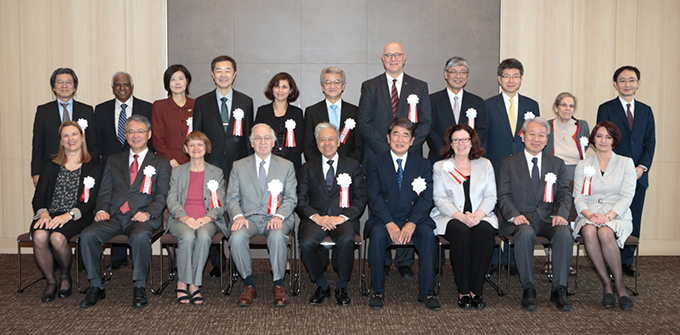
Group photograph of the speakers and organizers in the CGP/Abe Fellowship Program 25th Anniversary Symposium
Text: Tom Kain
Photos: Atsuko Takagi
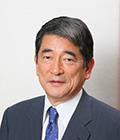 Yukio Okamoto (President, Okamoto Associates /Robert E. Wilhelm Fellow, MIT)
Yukio Okamoto (President, Okamoto Associates /Robert E. Wilhelm Fellow, MIT)
Yukio Okamoto is Robert E. Wilhelm Fellow at the MIT Center for International Studies and President of Okamoto Associates, a strategic and business consulting firm to Japanese multinationals and government-affiliated agencies. From 1968 to 1991, he was a career diplomat in Japan's Ministry of Foreign Affairs. From 1996 to 1998, he was a Special Advisor to Prime Minister Ryutaro Hashimoto and from 2001 to 2004 he again served as Special Advisor to Prime Minister Junichiro Koizumi, also serving as the Chairman of the Prime Minister's Task Force on Foreign Relations. Okamoto is a visiting professor at Ritsumeikan University and Tohoku University, and the author of many books on Japanese diplomacy. He was a special advisor to the Japan Foundation Center for Global Partnership from 1991 to 2005.
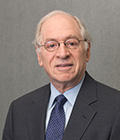 Gerald Curtis (Burgess Professor Emeritus of Political Science, Columbia University)
Gerald Curtis (Burgess Professor Emeritus of Political Science, Columbia University)
Gerald L. Curtis is Burgess Professor Emeritus of Political Science at Columbia University, former Director of Columbia's Weatherhead East Asian Institute, and Distinguished Research Fellow at the Tokyo Foundation. Professor Curtis is the author of numerous books and articles written in both English and Japanese, including The Logic of Japanese Politics, The Japanese Way of Politics, and Election Campaigning Japanese Style. His research focuses on Japanese politics, government, and foreign policy and U.S.-Japan relations. He is the recipient of numerous prizes and honors including the Chunichi Shimbun Special Achievement Award, the Masayoshi Ohira Memorial Prize, the Japan Foundation Award, the Marshal Green Award of the Japan-America Society of Washington, DC, and the Eagle on the World award of the Japan Chamber of Commerce in New York. He was decorated by the Emperor of Japan with the Order of the Rising Sun, Gold and Silver Star in 2005. Curtis was a founding member of the Center for Global Partnership's Advisory Committee.
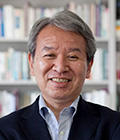 Akihiko Tanaka (Professor of International Politics, The University of Tokyo)
Akihiko Tanaka (Professor of International Politics, The University of Tokyo)
Akihiko Tanaka is Professor of International Politics at the Institute for Advanced Studies on Asia (IASA) at the University of Tokyo. He served as President of the Japan International Cooperation Agency (JICA) from 2012 to 2015. Prior to that, he was Vice President of the University of Tokyo (2011-2012), Executive Vice President of the University of Tokyo (2009-2011), and Director of the Division of International Affairs of the University of Tokyo (2008-2010). Professor Tanaka's specialties include theories of international politics, contemporary international relations in East Asia, and Japan's foreign policy. He has numerous books and articles in Japanese and English, including The New Middle Ages: The World System in the 21st Century (2002). Tanaka was a Member and Chair for the Abe Fellowship Program Committee from 1991 to 1996.
 Sheila Smith (Senior Fellow for Japan Studies, Council on Foreign Relations
Sheila Smith (Senior Fellow for Japan Studies, Council on Foreign Relations
Sheila Smith is senior fellow for Japan studies at the Council on Foreign Relations (CFR) and an expert on Japanese politics and foreign policy. She is the author of Intimate Rivals: Japanese Domestic Politics and a Rising China (2015) and Japan's New Politics and the U.S.-Japan Alliance (2014). Her current research focuses on how geostrategic change in Asia is shaping Japan's strategic choices. In the fall of 2014, Smith began a project on Northeast Asian Nationalisms and Alliance Management. She joined CFR from the East-West Center in 2007, where she directed a multinational research team in a cross-national study of the domestic politics of the U.S. military presence in Japan, South Korea, and the Philippines. She teaches as an adjunct professor at the Asian Studies Department of Georgetown University and serves on the board of its Journal of Asian Affairs. Smith was awarded an Abe Fellowship in 2006.
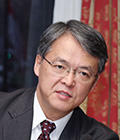 Yoshihide Soeya (Professor of Political Science and International Relations, Keio University)
Yoshihide Soeya (Professor of Political Science and International Relations, Keio University)
Yoshihide Soeya is Professor of Political Science and International Relations at the Faculty of Law of Keio University. He is the author of Japan's Economic Diplomacy with China, 1945-1978 (Oxford: Clarendon Press 1998) and Japan's Middle-Power Diplomacy (2005). He also co-edited Japan as a 'Normal Country'?: A Country in Search of its Place in the World (2011). His area of expertise includes politics and security in the Asia-Pacific Region, U.S.-China-Japan Relations, and Japan's external relations and diplomacy. He received his B.A. and Masters in International Relations from Sophia University and a Ph.D. in Political Science from the University of Michigan. Soeya was awarded an Abe Fellowship in 1992 and has also served as Chair of the Abe Fellowship Program Committee.
Back Issues
- 2023.12. 7 Movie Theaters aroun…
- 2023.6.16 The 49th Japan Found…
- 2023.4.24 The 49th Japan Found…
- 2022.12.27 Living Together with…
- 2022.12.27 Living Together with…
- 2022.8.12 Inner Diversity <…
- 2022.3.31 The 48th Japan Found…
- 2022.3.29 Beyond Disasters - T…
- 2021.11.29 Crossing Borders, En…
- 2021.4.13 Crossing Borders, En…


